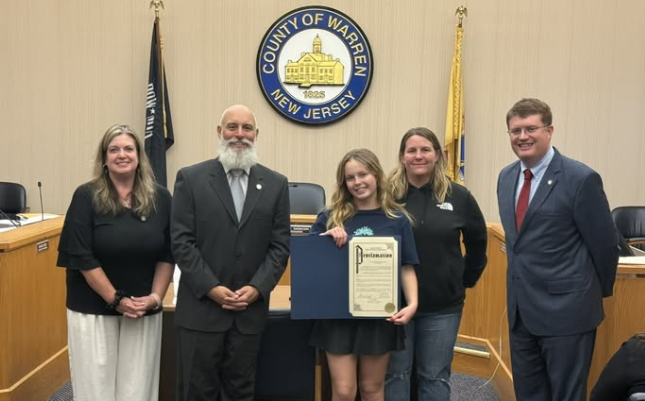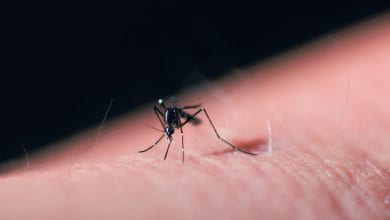
Warren County proclaims October as Dysautonomia Awareness Month to highlight nervous system disorder
WARREN COUNTY, N.J. – The Warren County Board of County Commissioners has proclaimed October as Dysautonomia Awareness Month, recognizing a complex group of disorders that affect more than 70 million people worldwide, including residents of Warren County.
Dysautonomia refers to medical conditions that cause the autonomic nervous system—which regulates involuntary bodily functions such as heart rate, blood pressure, respiration, digestion, and temperature control—to malfunction. The condition can affect people of any age, race, gender, or background.
The proclamation was inspired by Paityn Bates, a high school senior from Knowlton Township who lives with dysautonomia and attended the Commissioners’ meeting with her parents to accept the honor.
“I really didn’t know what it was before I got the diagnosis,” Bates said, adding, “Illnesses that are invisible aren’t recognized as much as somebody wearing a cast, but they are definitely as important.”
Bates shared how the condition impacts her daily life: “Two weeks ago, I passed out 15 times in one day. That’s why I feel bringing awareness is so important because these are the things you don’t see.”
Commissioners praised Bates for her courage and advocacy. Commissioner Director Jason J. Sarnoski commended her “dedication to civic responsibility,” calling it “really impressive to see a young person” working to raise awareness for such an important issue.
Commissioner James R. Kern III told Bates, “What you’re doing is one of the most important things residents can do, advocacy.”
Commissioner Lori Ciesla added, “The more we know, the better we can help those” with the condition.
While some forms of dysautonomia have manageable symptoms, others can be severely disabling or even life-threatening, causing pain and hardship for patients and their families.
The commissioners emphasized that increased awareness can help promote earlier diagnosis and treatment, save lives, and foster community support for individuals and families coping with the disorder.





